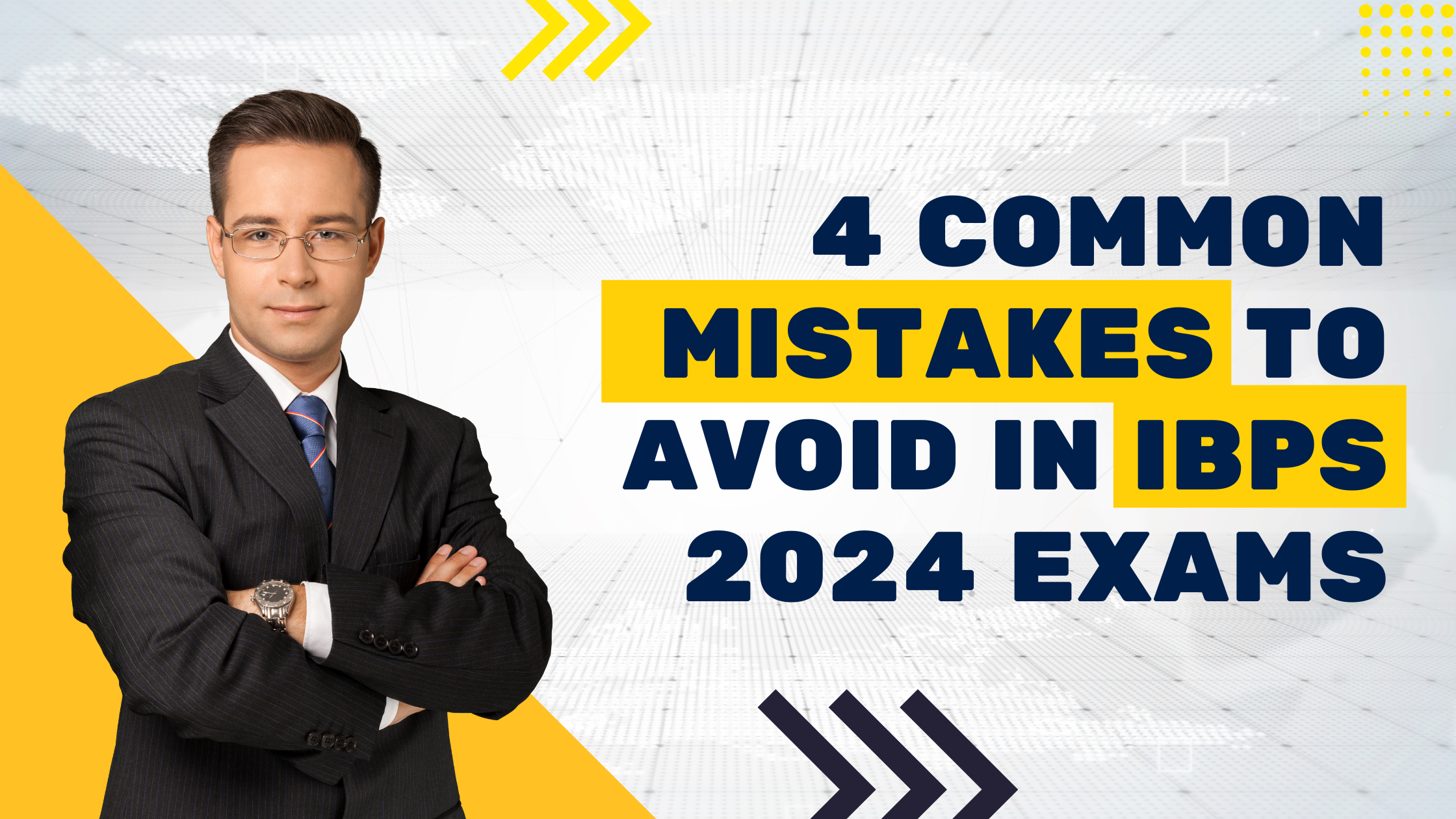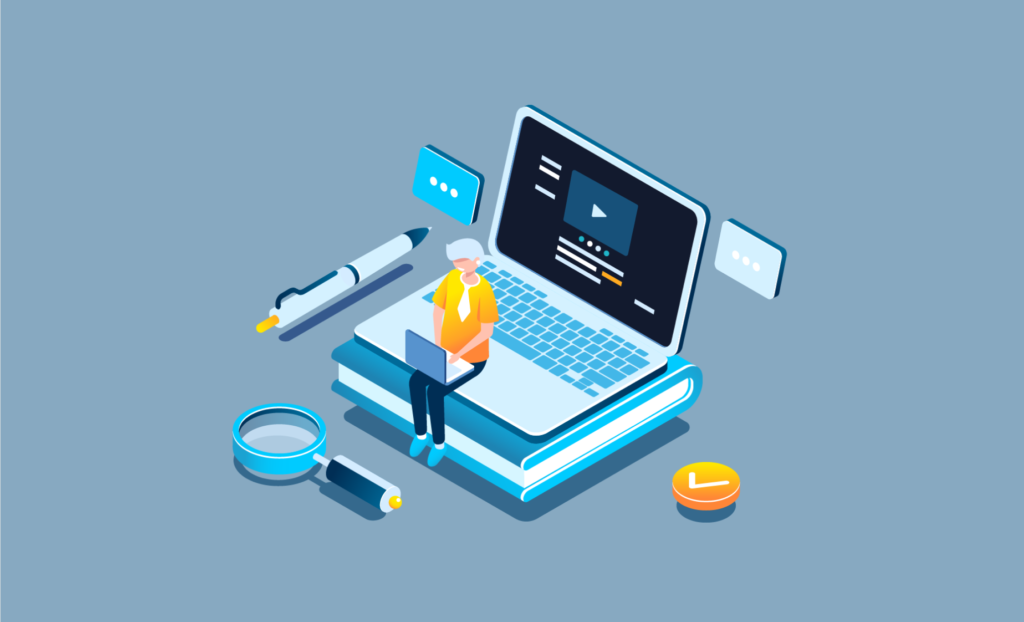Table of Contents
The Institute of Banking Personnel Selection (IBPS) exams are a critical step for many aspiring to secure positions in the banking sector. However, the journey to acing these exams is often fraught with potential pitfalls. As candidates gear up for the IBPS 2024 exams, it is essential to steer clear of common mistakes that could impede their success. Here are four major missteps to avoid in your preparation for the IBPS 2024 exams.
Here are some 4 Common Mistakes to Avoid in IBPS 2024 Exams
Underestimating the Importance of Time Management
One of the most frequent errors candidates make is not managing their time effectively during both the preparation phase and the actual exam. The IBPS exams are designed to test not only your knowledge but also your ability to use time efficiently.

- Preparation: Allocate specific times for each subject and stick to a strict schedule. Use timers during practice sessions to acclimate to the pressure of timed exams.
- During the Exam: Prioritize questions based on your strengths and the marks allotted. Avoid spending too much time on difficult questions at the expense of those you can solve more quickly.
Neglecting Weak Areas
Many candidates tend to focus on strengthening their strong areas while neglecting their weaker subjects. This approach can backfire, as the IBPS exams require a balanced performance across all sections to meet the sectional cut-offs.
- Balanced Preparation: Identify your weak areas early in your preparation process. Devote extra time and resources to these subjects to ensure a more balanced skill set during the exams.
Relying Solely on Memorization
Banking exams like the IBPS test your understanding and application of concepts rather than just your ability to recall information. Over-relying on memorization can lead to difficulties in solving application-based questions, which are common in sections like Reasoning and Quantitative Aptitude.
- Conceptual Understanding: Focus on understanding the underlying principles and logic behind each topic. Practice applying these concepts in different scenarios, especially for subjects like Reasoning and Quantitative Aptitude.
Ignoring the Importance of Mock Tests and Previous Year Papers
Skipping regular practice with mock tests and previous year papers is a critical mistake. These practice tools are invaluable for understanding the exam format, question patterns, and the type of logic required.
- Regular Mock Tests: Incorporate mock tests into your weekly study schedule. Analyze your performance in these tests to identify persistent weaknesses and track your progress.
- Previous Year Papers: These offer insights into the types of questions that are frequently asked and help in adjusting your strategies accordingly.
Overlooking the Syllabus Changes and Exam Pattern
Banking exams, including the IBPS, often undergo changes in their syllabus and exam pattern. A common mistake made by many candidates is sticking to outdated materials and preparation methods without verifying against the latest exam guidelines.
- Stay Updated: Regularly check the official IBPS website and trusted educational forums for any updates about the syllabus or exam structure. Adjust your preparation strategy accordingly to accommodate new topics or changes in the pattern.
Insufficient Focus on Revision
While it is crucial to cover all topics, it’s equally important to revise them systematically. Many candidates fail to allocate enough time for revision in their study plan, which leads to a lack of confidence and forgetfulness during the exam.
- Structured Revision: Schedule regular revision sessions to go over previously studied material. This helps in reinforcing knowledge and ensures that information is retained effectively until the exam day.
Not Taking Care of Mental and Physical Health
The stress of preparing for competitive exams can sometimes lead candidates to neglect their physical and mental health. This neglect can result in decreased concentration, memory lapses, and a diminished ability to perform under pressure.
- Regular Breaks and Health Management: Make sure to take breaks during study sessions to avoid burnout. Engage in physical activities and maintain a balanced diet to keep your body and mind in good shape. Additionally, practices like meditation can enhance focus and reduce anxiety.
Isolation from Peer Learning
Many candidates choose to prepare in isolation, missing out on the benefits of group study or peer learning. Discussing problems and sharing knowledge with peers can provide new insights and make learning more comprehensive and less monotonous.
Neglecting the Importance of Speed and Accuracy
The IBPS exams are not just about knowing the right answers but also about answering them quickly and accurately. Some candidates focus heavily on either speed or accuracy, compromising the other.
- Balanced Approach: Practice achieving a balance between speed and accuracy by timing yourself while ensuring you make as few mistakes as possible. Use speed drills and timed quizzes to improve this aspect.
Inadequate Attention to Instructions
Sometimes, in the rush to answer questions, candidates skim through or misinterpret the instructions, leading to avoidable errors. This is particularly common in the Logical Reasoning and Data Interpretation sections.
- Careful Reading: Make it a habit to read all instructions carefully, especially when handling complex questions or new patterns. This can prevent mistakes that occur due to oversight.
Overconfidence or Under confidence
Overconfidence can lead to inadequate preparation or careless mistakes, whereas underconfidence can cause anxiety and poor performance. Both extremes are detrimental.
- Self-Assessment: Regularly assess your preparation to keep your confidence levels in check. Mock tests are excellent for this purpose, providing a reality check and helping adjust your study strategy.
Failing to Adapt to Online Examination Format
Since IBPS exams are conducted online, unfamiliarity with the digital format can hinder performance, even if one is academically prepared. Candidates who are used to paper-based tests often overlook this aspect.
- Practice on Digital Platforms: Use online test series and educational apps to get comfortable with the digital format. Familiarize yourself with the functionality of online test interfaces, such as marking questions for review or changing answers.
Skipping Relaxation and Mindfulness Practices
Exam preparation can be stressful, and without proper relaxation, your brain can become overwhelmed, impacting your cognitive functions during the exam.
- Incorporate Relaxation Techniques: Include activities that promote relaxation and mindfulness in your routine, such as yoga, meditation, or even simple breathing exercises. These practices can help maintain your mental equilibrium.
- Not Utilizing Technology Effectively
- While many candidates use digital resources for studying, not all leverage technology to its fullest potential. Failing to use advanced tools for learning and revision can put you at a disadvantage.
- Leverage Educational Technologies: Utilize apps and software that offer adaptive learning, performance tracking, and personalized feedback. These tools can help identify your weak points and optimize your study time.
- 15. Overloading on Information
- In the race to cover every possible topic, candidates often overload themselves with too much information, leading to confusion and fatigue. This can dilute focus on important topics.
- Focused Learning: Prioritize essential topics and understand them thoroughly before moving to less critical areas. Use the syllabus and weightage of each section to guide your study plan.
- 16. Ignoring the Role of Nutrition and Exercise
- Physical health has a significant impact on mental performance. Neglecting nutrition and physical exercise can reduce your stamina and concentration, both crucial for long exam hours.
- Maintain Physical Health: Ensure a diet rich in brain foods like nuts, berries, and fish. Regular cardiovascular exercise can improve brain function and reduce stress.
- 17. Not Setting Realistic Goals
- Setting unrealistic goals can lead to disappointment and stress, which are counterproductive. This often happens when candidates set daily study targets that are too ambitious.
- Set Achievable Targets: Break your preparation into manageable segments. Celebrate small victories to stay motivated. This approach keeps the preparation process realistic and less overwhelming.
- 18. Failing to Simulate Exam Conditions
- Practicing in a controlled environment that mimics the exam conditions can significantly boost your readiness. Many candidates practice in comfortable settings, which doesn’t fully prepare them for the actual exam day environment.
- Simulate Exam Conditions: Regularly set up practice sessions that replicate the exam environment, including timing, seating, and even minor distractions. This can help acclimatize you to the pressures of the exam day.
- 19. Limited Understanding of the Banking Sector
- For sections like General Awareness, having a superficial knowledge of banking and financial terms is insufficient. Candidates often overlook the importance of understanding deeper financial concepts and current banking trends.
What is the IBPS Clerk Exam?
The IBPS Clerk exam is a competitive examination conducted by the Institute of Banking Personnel Selection (IBPS) for clerical cadre positions in various public sector banks across India.
How can I apply for the IBPS Clerk Exam?
Candidates can apply for the IBPS Clerk Exam through the official IBPS website during the specified application period. Ensure you meet the eligibility criteria before applying.
What are the eligibility criteria for the IBPS Clerk Exam?
Candidates must have a bachelor’s degree in any discipline from a recognized university. The age limit is generally between 20 and 28 years, with age relaxation applicable for certain categories as per government norms.
What is the selection process for the IBPS Clerk Exam?
The selection process includes two phases: a Preliminary Exam and a Main Exam. Both are conducted online. Candidates need to qualify in the Preliminary Exam to be eligible for the Main Exam.
What subjects are covered in the IBPS Clerk Exam?
Preliminary Exam: English Language, Numerical Ability, and Reasoning Ability.
Main Exam: General/ Financial Awareness, General English, Reasoning Ability & Computer Aptitude, and Quantitative Aptitude.




